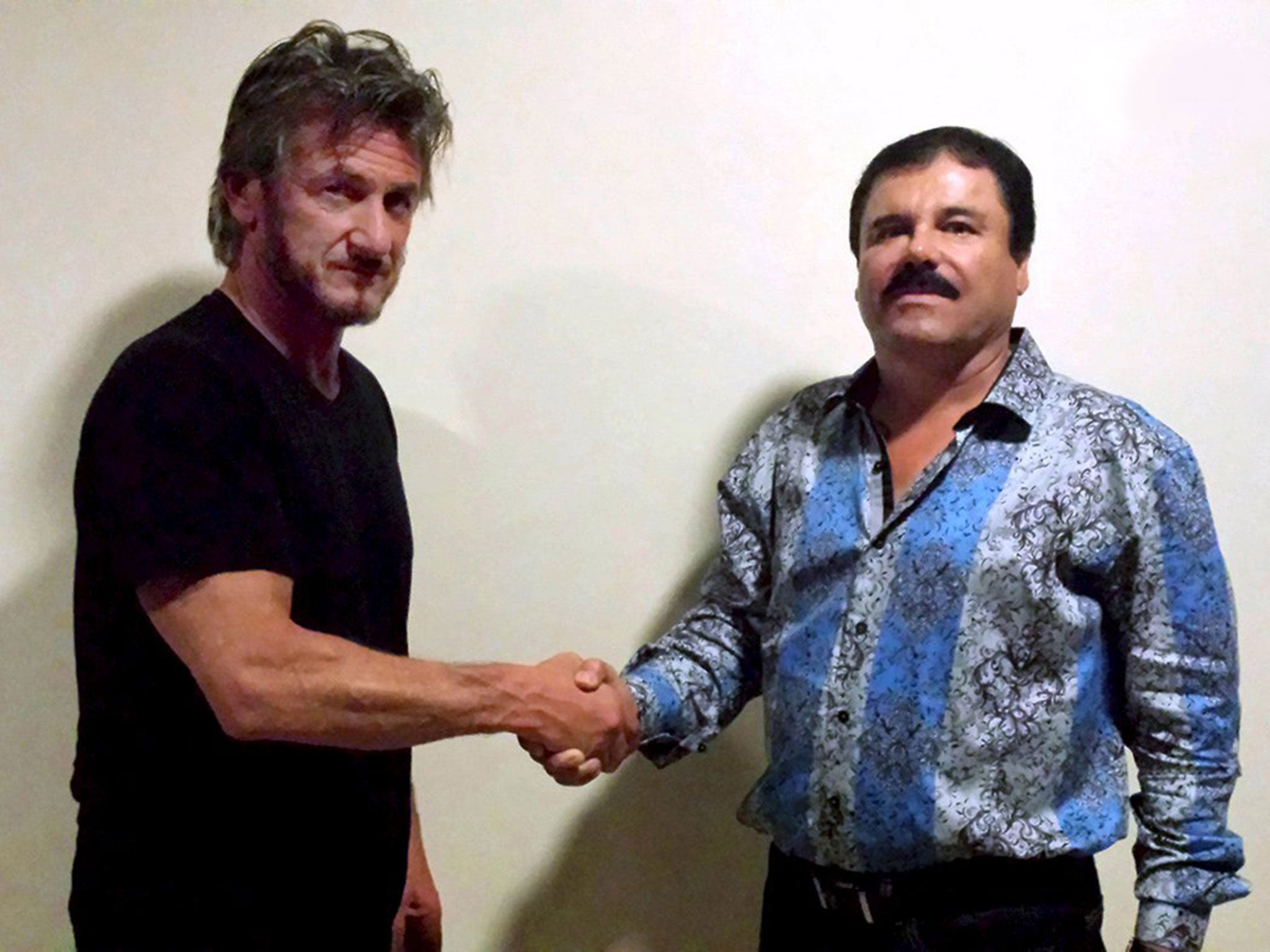Why many consider Sean Penn's 'El Chapo' meeting an 'epic insult' to Mexican journalists
The actor interviewed 'El Chapo' for Rolling Stone magazine before his arrest

As the Mexico City bureau chief for the Dallas Morning News for two decades, Alfredo Corchado has been on the front lines of the journalistic struggle to document the brutal toll of drug violence across Mexico.
That struggle is among the world’s deadliest, with more than 60 Mexican journalists killed or having disappeared over the past decade, according to the Committee to Protect Journalists.
Stories about government corruption, Mexico’s middle-class exodus and drug violence have placed Corchado on the receiving end of numerous death threats that have forced him to flee the country for months at a time. Like many of his courageous Mexican contemporaries, he has attempted to forge ahead, even as entire regions of the embattled nation — Sinaloa, Tamaulipas and Durango — have had their independent media silenced by the specter of violence.
In these places, Corchado notes, nobody prints anything without cartel approval, including — it would seem — Sean Penn.
For Corchado and many of his colleagues, therein lies the problem with the American actor’s controversial first-person account of meeting with the notorious drug lord Joaquín “El Chapo” Guzmán. Corchado said the story — published Saturday in Rolling Stone magazine and submitted for Guzmán’s approval before it was made public — is evidence of the inherent conflict between journalism and entertainment.
“When you’re not really challenging the person and have agreed to submit the story for approval, it sounds more like a Hollywood entertainment,” Corchado told The Washington Post. “It’s not on par with the sacrifice of many of my colleagues in Mexico and throughout the world who have lost their lives fighting censorship.”
“Is he serving the public or is he aggrandizing himself?” he added, referring to Penn.
It’s a question that has rippled across the journalism world over the past 24 hours, drawing as much criticism as it has undoubtedly drawn clicks.
To many observers, Penn’s sometimes playful prose revealed a troubling admiration for the man who “is one of the main players in the country’s bloody drug wars, which have claimed at least 100,000 lives over the last decade,” according to Quartz.
“As you dive deeper into the meandering mess, it becomes clear that Penn holds some sort of Hollywood-inspired reverence for El Chapo,” Gawker’s Melissa Cronin writes in a post that catalogues the story’s worst lines.
For others, Penn’s controversial account was reminiscent of the magazine’s 9,000-word debacle about a gang rape at the University of Virginia that never occurred.
Jeet Heer, a senior editor for the New Republic, alluded to the fabricated account on Twitter, writing: “Rolling Stone sets standard journalist ethics aside to get story that will attract enormous attention. What could go wrong?”
Others, such as Vice correspondent Danny Gold, called out journalists for their hypocrisy. He argued that Penn did what any other journalist desperate for the most sought-after scoop in the world would’ve done, according to CNN.
“Never a fan of Penn’s journalism,” Gold wrote, “but me and every other journo would have compromised a whole lot more to get an interview with El Chapo. Anyone else who says otherwise is lying.”
MSNBC’s Chris Hayes noted that ethical considerations have a way of becoming immaterial in the face of “enormous traffic.”
Joel Simon, the executive director of the Committee to Protect Journalists, told The Post that he would let the media debate the ethics of Penn’s actions. Before making a judgement, however, he suggested that people consider the degree of self-censorship occurring in communities across Mexico. Journalists in Mexico, he noted, receive no protection from their government, which is often complicit in the risks they take to write about.
Considering that meetings with high-level cartel members and the media are “highly unusual,” but not unheard of, he said the actor’s story should be judged by what it reveals.
“Should journalists ever interview criminals?” Simon asked. “I would say sure.”
“But if you as a journalist interview someone like El Chapo, you better deliver some valuable and important information, in my view,” he added. “In this particular instance, he had an assignment for a highly visible and important publication, and whether he delivered a story worthy of the risks he took, that’s something the editors have to decide and the media itself should be debating.”
Noting how rare such an interview is, Corchado said he hopes some insight will come from giving the public any glimpse of the criminal mastermind. And yet, he’s still troubled by how the information was acquired.
“Do I or other journalists wish we would have gotten the interview?” he added. “Of course, but I doubt that we would have been provided with the same protections of a Hollywood star. The interview also came with big strings attached, like final approval by Chapo of the article. That amounts to similar censorship that my Mexican colleagues face today. Except if they don’t comply, they may not live to tell about it.”
Washington Post
Join our commenting forum
Join thought-provoking conversations, follow other Independent readers and see their replies
Comments
Bookmark popover
Removed from bookmarks